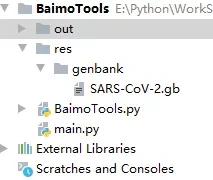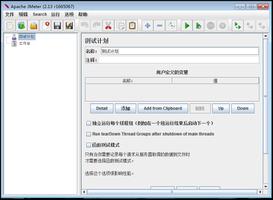如何实现python接口自动化?

之前跟大家说过关于自动化内容,但是大框内容,不是经常能碰到的问答,但是大框里面充斥着很多细致的内容,比如关于接口自动化,想必很多小伙伴都不知道你这个内容,也不知道如何使用吧,但是大家不必担心,下面就演示给大家看。
一、准备工作:
需要使用的第三方库介绍
Requests
python中有许多针对http的库,例如自带的urllib2,但是自带的urllib2编写起来实在是太费精力,所以采用号称"HTTP for Humans"的requests库。
xlrd
xlrd使得python可以方便的对excel文件进行读写操作,此次通过xlrd读取excel文件中的测试数据。
http测试工具:
一个使用 Python + Flask 编写的 HTTP 请求和响应服务,该服务主要用于测试 HTTP 库。后续测试我们都基于这个网站。
在本地搭建httpbin:
考虑到测试时要不断访问 httpbin 网站,请求过多担心被拉到黑名单,我们自己在本志搭建一套httpbin服务。
1、安装:pip install gunicorn
2、安装:pip install httpbin
3、启动:gunicorn httpbin:app
二、实现代码:
get方法简单使用:
不带参数的get:
# -*- coding:utf-8 -*-#不带参数的get
import requests
import json
host = "http://httpbin.org/"
endpoint = "get"
url = ''.join([host,endpoint])
r = requests.get(url)
#response = r.json()
print type(r.text)
print (eval(r.text))
输出:
{'origin': '183.14.133.88',
'headers': {
'Connection': 'close',
'Host': 'httpbin.org',
'Accept-Encoding': 'gzip,
deflate',
'Accept': '*/*',
'User-Agent': 'python-requests/2.18.1'
},
'args': {
},
'url': 'http: //httpbin.org/get'
}
2、 带参数的get:
# -*- coding:utf-8 -*-#带参数的get
import requests
import json
host = "http://httpbin.org/"
endpoint = "get"
url = ''.join([host,endpoint])
params = {"show_env":"1"}
r = requests.get(url=url,params=params)
print r.url
输出:
{'origin': '183.14.133.88',
'headers': {
'X-Request-Id': 'ebe922b4-c463-4fe9-9faf-49748d682fd7',
'Accept-Encoding': 'gzip,
deflate',
'X-Forwarded-Port': '80',
'Total-Route-Time': '0',
'Connection': 'close',
'Connect-Time': '0',
'Via': '1.1vegur',
'X-Forwarded-For': '183.14.133.88',
'Accept': '*/*',
'User-Agent': 'python-requests/2.18.1',
'X-Request-Start': '1504755961007',
'Host': 'httpbin.org',
'X-Forwarded-Proto': 'http'
},
'args': {
'show_env': '1'
},
'url': 'http: //httpbin.org/get?show_env=1'
}
好啦,大家可以先消化了解下哦~如果还想了解更多的精彩内容,可以到python教学中心查询~
以上是 如何实现python接口自动化? 的全部内容, 来源链接: utcz.com/z/528840.html





